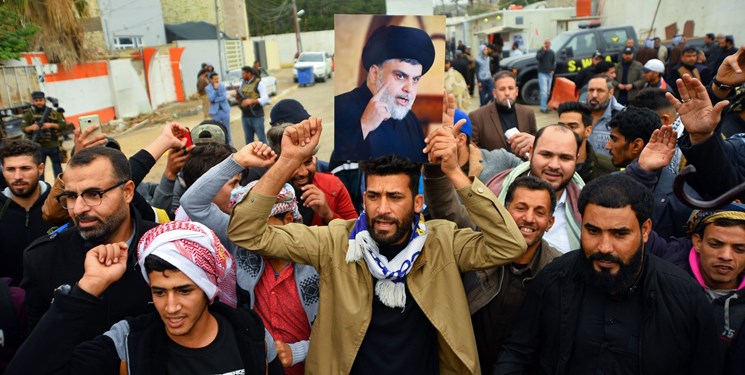Street politics; Political developments in Iraq after the resignation of Sadr.
The resignation of the Sadr-affiliated representatives further complicated the Iraqi political climate, and from now on we will have to witness another political process to form a government.
The leader of the Sadr faction in Iraq, Sayyid Muqtada al-Sadr, on Sunday night (June 12th) called on 73 members of the faction to submit their resignations to parliament, and then Speaker Mohammad al-Halbousi agreed to the resignation, so that political developments in Iraq eight months after Holding elections becomes more complicated than before.
“I did not worry about power and politics, I just wanted to expose any oppressive corrupt,” he said last Thursday, urging Sadr MPs to prepare for his resignation. The majority is for us, not others; “I will not participate in an agreement government.” He also claimed that the political stalemate in Iraq was “fabricated”.
With this resignation, the “Enduring the Homeland” coalition, which was formed with the unification of the Sadr faction, the Kurdistan Democratic Party led by Massoud Barzani and the Sunni coalition “Al-Taqdam” led by Mohammad Al-Halbousi, also disappeared.
Background
The Sadr coalition won 73 seats in the October 2021 parliamentary elections, the Al-Taqdam coalition 37 seats and the Kurdistan Democratic Party 31 seats, but was still short of 329 seats to form a government to reach 165 seats. Meanwhile, Muqtada al-Sadr has always emphasized the formation of a “national majority government” in recent months; He hoped to form a majority faction and take over the government by forming an alliance with independents, a hope that was never fulfilled.
In contrast, the “Shiite Coordination Framework” political coalition was represented by individuals such as Nouri al-Maliki and Hadi al-Amiri, who called for the formation of a coalition government. The coalition announced in December 2021 that it had been able to attract more than 100 delegates.
During this period, the leaders of the Shiite coordination framework, including Hadi al-Amiri, repeatedly asked Muqtada al-Sadr to enter the coalition process and form a coalition government. Several meetings took place between Muqtada al-Sadr and leaders of Shiite groups, but no agreement was reached. In one case, Muqtada al-Sadr stated that the condition for joining the coalition was the departure of Nouri al-Maliki, who was opposed to the coordination framework.









